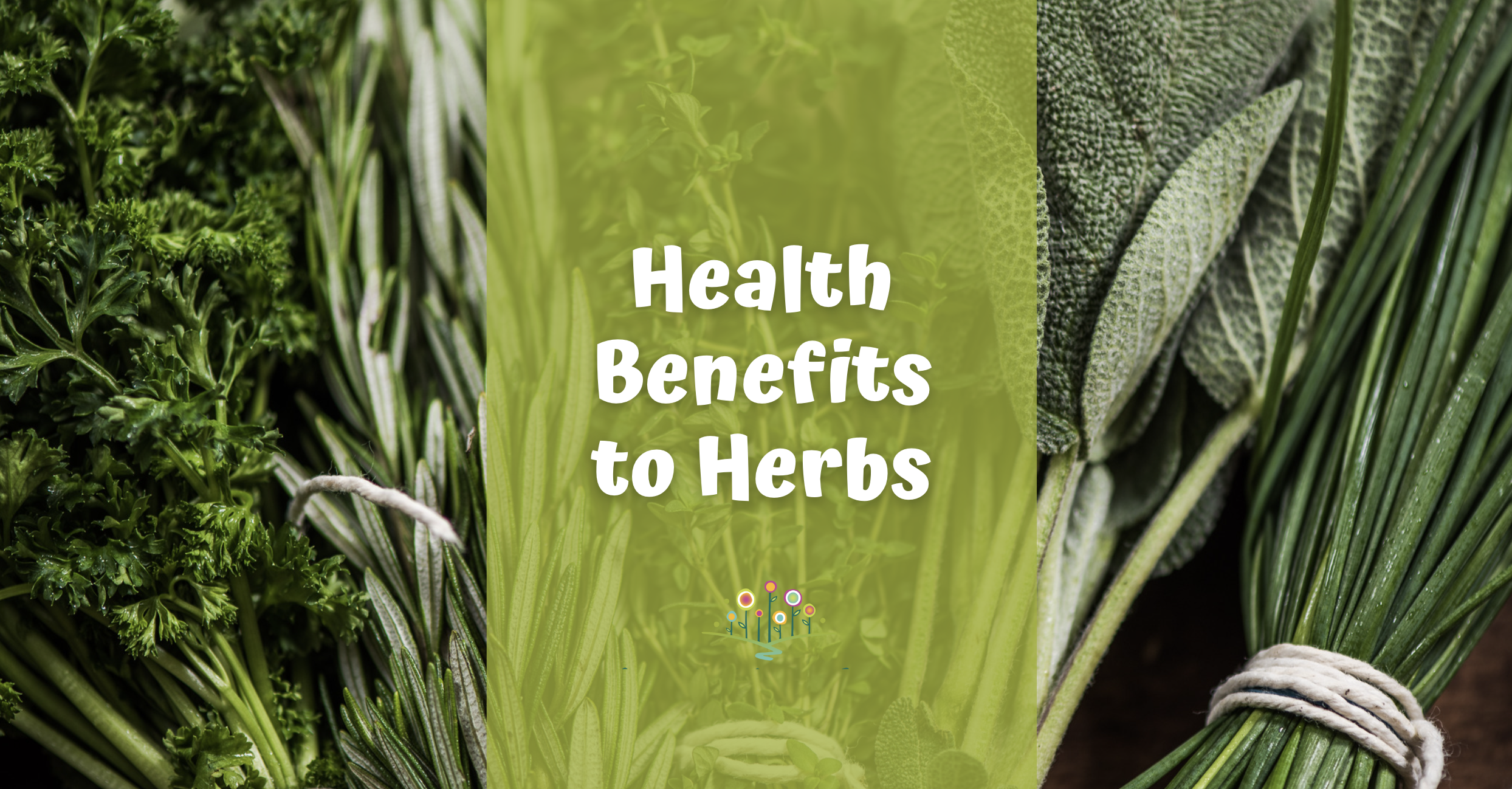
At CVG, we are big fans of herbs. While they are often relegated to the kitchen spice rack, many herbs provide impressive health benefits. Some herbs can lead to a happy, healthy, and hearty life.
In a world brimming with modern medicine, it’s easy to overlook the natural wonders that have been healing and soothing humanity for centuries. Herbs, often considered solely as culinary enhancements, have a long history of therapeutic use. The aroma, flavor, and even appearance of these plants offer more than just sensory delight – they also pack a punch of health benefits.
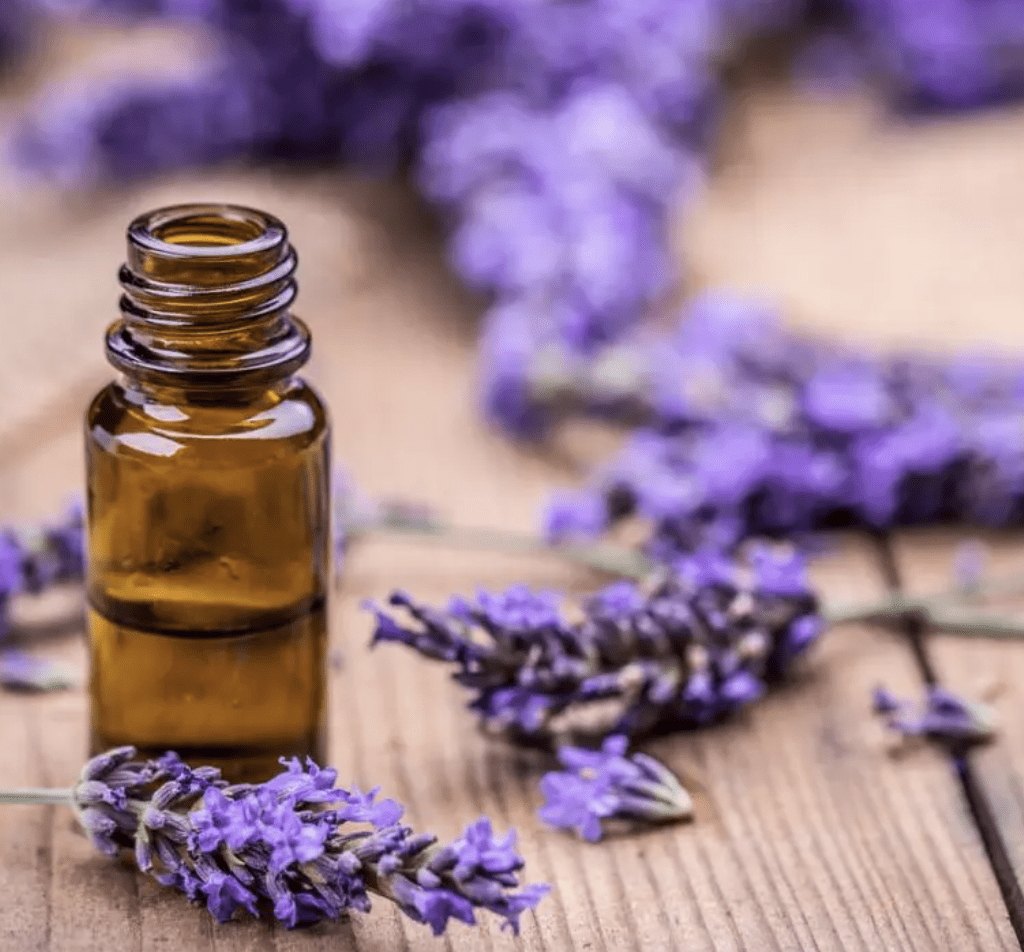
1. Lavender (Lavandula spp.) – Tranquility in a Blossom
Lavender’s calming scent has been known to ease stress and promote relaxation. Traditionally used in aromatherapy, lavender is believed to improve sleep quality, reduce anxiety, and soothe headaches. Some studies suggest lavender can aid digestive issues, wound healing, and hair loss.
To enjoy its benefits, you can:
- Infuse your lavender oil as a healing facial moisturizer, cleanser, and hair conditioner. It can also be applied to sunburns, rashes, and bug bites.
- Brew a lavender tea to calm anxiety, boost your mood, and promote restful sleep.
- Place sachets of dried flowers around your home for a fresh, calming scent in your bedroom, bathroom, closet, or anywhere else that needs it.
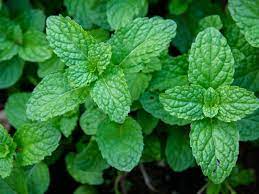
2. Peppermint (Mentha x piperita) – A Minty Fresh Revival
Peppermint’s invigorating aroma isn’t just for chewing gum. Its soothing properties are celebrated for alleviating digestive issues like indigestion and bloating. Peppermint is also an excellent natural decongestant and can be used to reduce pain in muscles and joints.
To enjoy its benefits, you can:
- Infuse your peppermint oil to provide relief from muscle pain and itchy skin.
- Brew peppermint tea to ease chest pain, headaches, nasal congestion, and digestive issues.
- Make “digestion tinctures” for soothing nausea, gas, and stomach cramps.
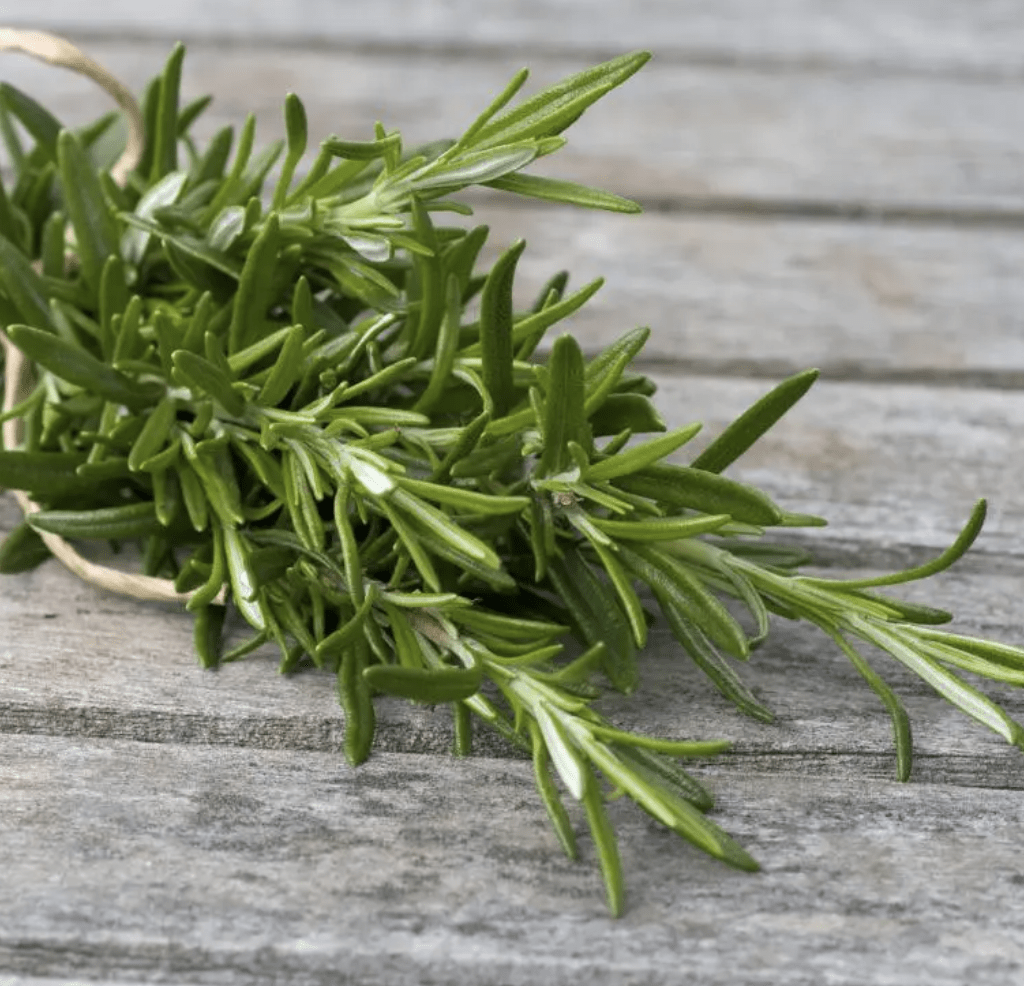
3. Rosemary (Salvia rosmarinus) – Memory’s Muse
Rosemary has long been associated with memory enhancement, as its fragrant leaves stimulate cognitive function and boost concentration. It has significant antioxidant and antimicrobial properties and has been used to help alleviate muscle pain, soothe the respiratory system, and promote hair growth.
To enjoy its benefits, you can:
- Infuse your rosemary oil to massage on the scalp for hair health, on the body for muscle soreness, and on the skin for extra hydration and nourishment.
- Brew rosemary tea to increase circulation, reduce inflammation, reduce mental fatigue, and provide the body with an antioxidant boost.
- Make an herbal steam to improve your mood, memory, and concentration.
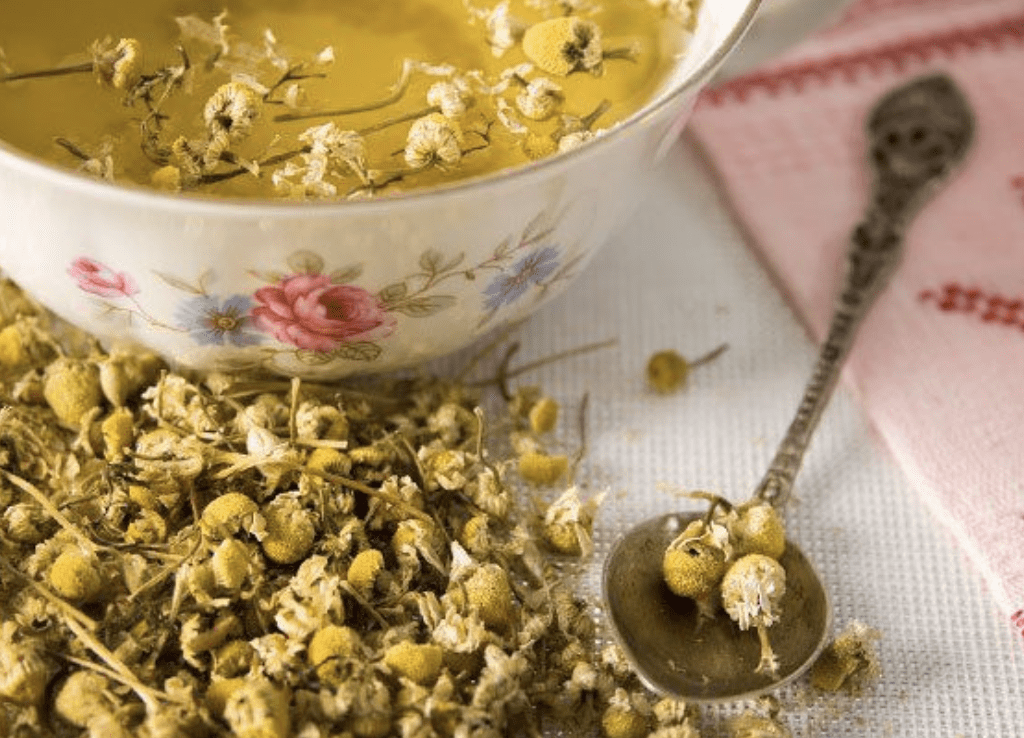
4. Chamomile (Matricaria chamomilla) – Serenity in a Cup
There’s a reason Chamomile tea is a popular part of many bedtime rituals. Known for its calming effects, chamomile can reduce anxiety, promote relaxation, and aid sleep. This herb can also improve the symptoms of gastrointestinal issues, soothe muscles, and potentially regulate blood sugar.
To enjoy its benefits, you can:
- Infuse your chamomile oil in lotion, soap, lip balm, and body scrubs to soothe dry, rough, or irritated skin.
- Brew chamomile tea to relax, soothe digestive problems, and boost your immune system.
- Add dried flowers to a potpourri blend, foot soak, or bath to help reduce stress, muscle tension, and skin irritation.
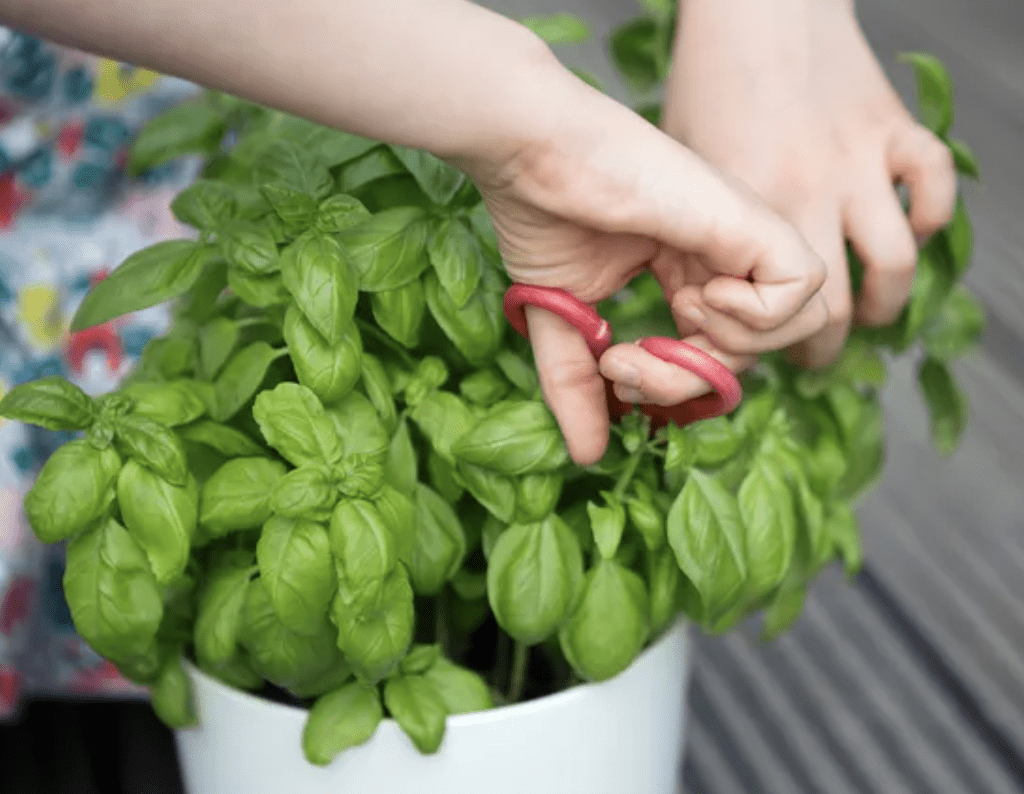
5. Basil (Ocimum basilicum) – More Than a Pizza Topper
Basil, beyond being a culinary delight, is rich in antioxidants and boasts antibacterial and anti-inflammatory properties. It’s believed to aid digestion, support cardiovascular health, and reduce physical and mental stress.
To enjoy its benefits, you can:
- Infuse basil oil to cleanse hair and skin, relax muscles, and treat insect bites.
- Brew basil tea to reduce inflammation, fight bacteria, balance pH levels, improve digestion, and support heart and liver function.
- Make herbal steam as a decongestant, mood booster, and headache relief aid.
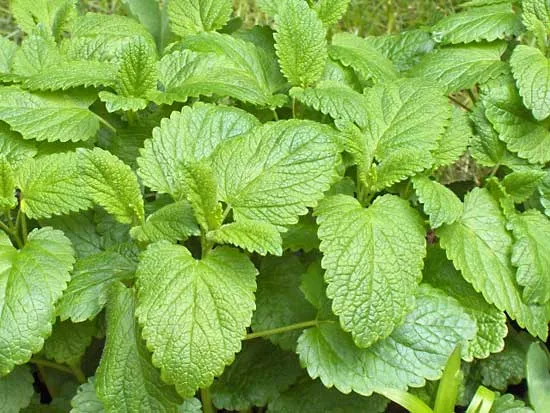
6. Lemon Balm (Melissa officinalis) – The Calming Lemon Scent
Lemon balm, as its name suggests, offers a delightful lemony aroma. It’s known to have a calming effect on anxiety and restlessness and promotes sleep. Traditionally used to heal wounds, it may also reduce pain from digestional issues.
To enjoy its benefits, you can:
- Infuse your own lemon balm oil to soothe skin, heal sores, and cleanse and moisturize your face.
- Brew lemon balm tea to promote relaxation, improve digestion, and reduce cramps.
- Make a lemon balm syrup for fighting viruses, stomachaches, and stress.
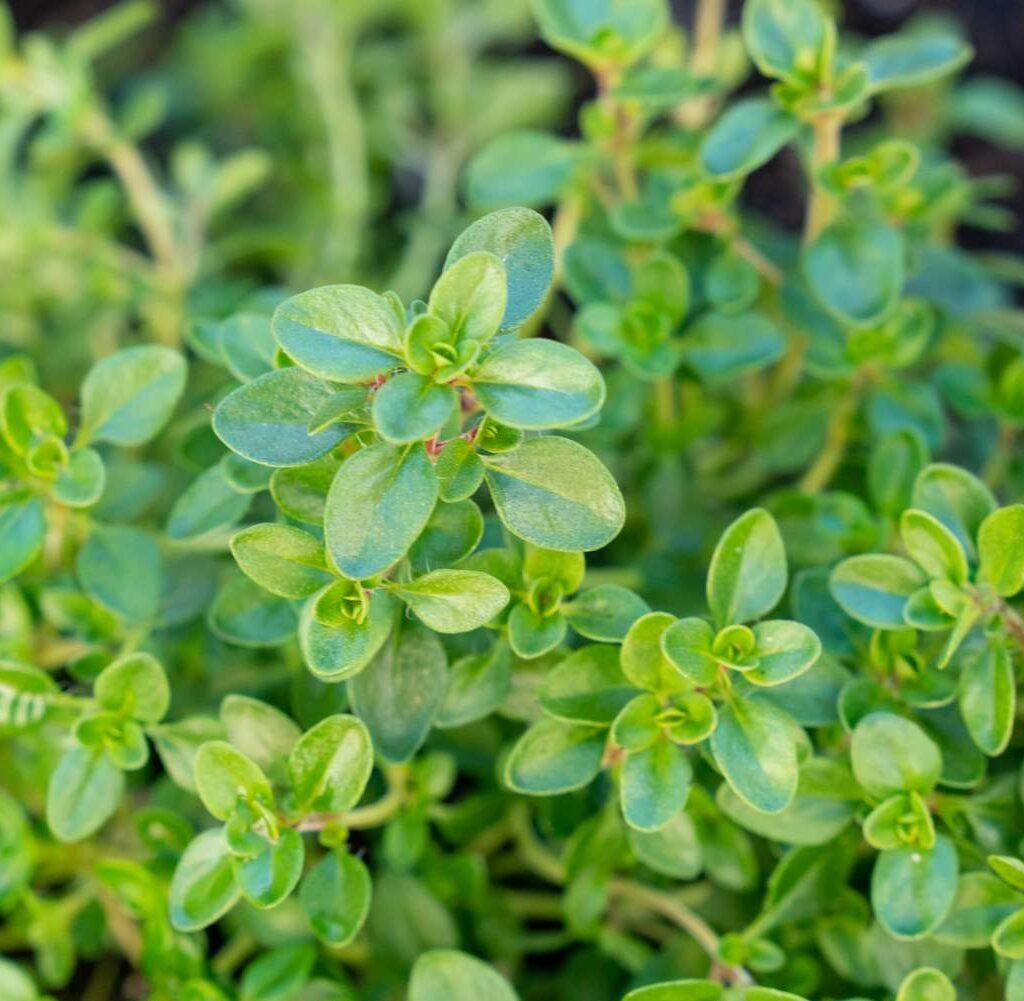
7. Thyme (Thymus vulgaris) – Nature’s Antiseptic
Thyme is more than just a popular spice; it’s also a potent antiseptic. The compounds found in this powerful herb’s leaves have been used for centuries to treat and prevent infections. Thyme’s other potential medicinal applications include fighting acne, lowering blood pressure, alleviating cold symptoms, boosting mood, and much more.
To enjoy its benefits, you can:
- Infuse your own thyme oil for healing burns, wounds, and skin problems, soothing joint and muscle pain, and preventing infections.
- Brew a cup of thyme tea to boost your immune system, manage cholesterol levels, and reduce stress.
- Make a thyme herbal honey to treat cold and flu symptoms such as coughing, congestion, sore throat, and digestive issues.

8. Calendula (Calendula officinalis) – Your Skin’s Best Friend
Calendula, often called marigold (though different from the ornamental flower variety), is renowned for its skin-soothing properties. It’s a popular ingredient in creams and balms due to calendula’s potential to calm irritation and treat wounds. Packed with antioxidants and antifungal and antimicrobial properties, calendula can help heal the body inside and out.
To enjoy its benefits, you can:
- Infuse your own calendula oil for use as a facial cleanser, skin moisturizer, and burn and rash treatment.
- Brew calendula tea to decrease inflammation, muscle fatigue, and oxidative stress in the body.
- Make a marigold tincture for healing wounds, soothing mouth and throat infections, and treating acne.

9. Coneflower (Echinacea) – Nature’s Immunity Booster
Coneflower is a herbal powerhouse celebrated for its immune-boosting abilities. The plant’s roots, leaves, and flowers contain active compounds traditionally used to strengthen the immune system, fight off infections, and alleviate ailments ranging from wounds to cold and flu. It is also high in antioxidant and inflammatory properties, and can potentially reduce stress and anxiety.
To enjoy its benefits, you can:
- Infuse and apply coneflower oil to wounds, stings, bites, and chapped skin to promote healing.
- Brew coneflower tea to fight off infections, reduce inflammation, and boost your mood.
- Make coneflower cough syrup to strengthen your immune system and to soothe cold and flu symptoms such as sore throat, stuffy nose, and body aches.
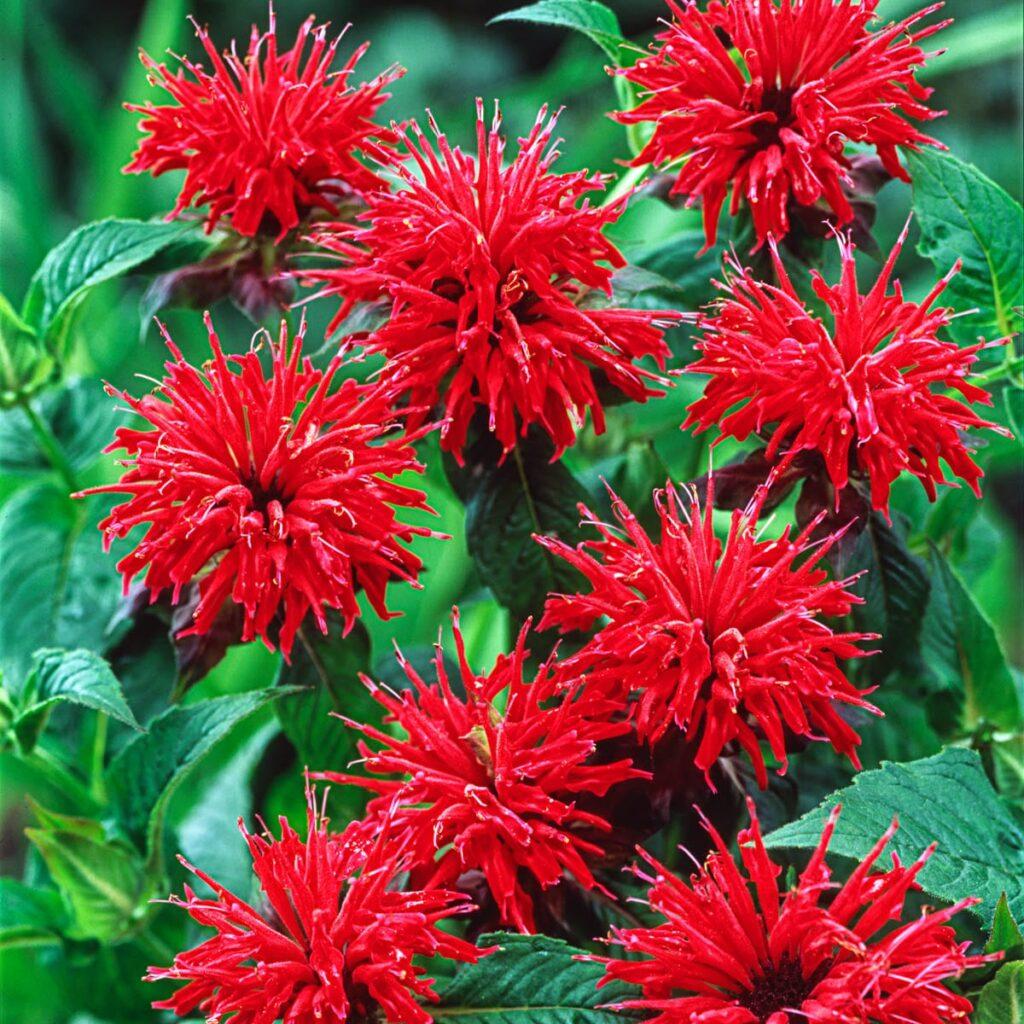
10. Bee Balm (Monarda spp.) – A Healing Balm for Body and Soul
Bee balm is a vibrant and aromatic herb offering a multitude of health benefits. Its leaves and flowers are brimming with antimicrobial essential oils, making it a natural choice for treatment of minor infections and wounds. Traditionally, bee balm was used to soothe sore throats, alleviate respiratory issues, and ease digestive discomfort.
To enjoy its benefits, you can:
- Infuse your own bee balm oil and apply to stings, rashes, and wounds to heal the skin and prevent infections.
- Brew bee balm tea to relieve digestive issues such as nausea, upset stomach, and bloating.
- Make a bee balm oxymel to alleviate cold symptoms such as sore throat, congestion, and cough.
These herbs are just the tip of the iceberg regarding nature’s healing bounty. Visit Chippewa Valley Growers for seeds and starter plants to grow your own herb garden. Remember, while these herbs offer wonderful benefits, consulting with a healthcare professional is always recommended, especially if you’re pregnant, taking medication, or have underlying health conditions.
So, the next time you sip on a cup of chamomile tea or breathe in rosemary steam, know that you’re not just indulging in flavors and aromas – you’re allowing nature’s remedies to work their magic in your life.
For more ideas about using herbs and spices at home, check out How to Celebrate National Herbs and Spices Day and Produce with Personality Vol. 2: What’s in Your Spice Cabinet?.
To see what’s springing up around the greenhouse, sign up for our newsletter.



